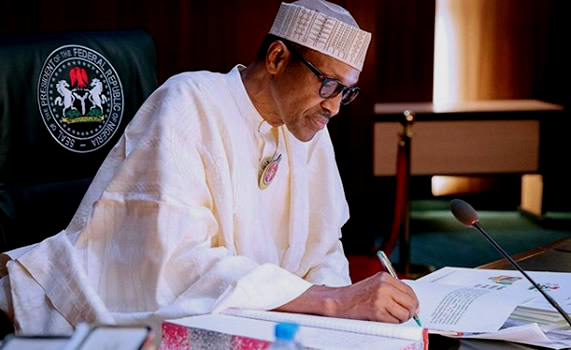By John Ikani
President Muhammadu Buhari has signed the Climate Change Bill into law.
According to a statement released by Presidential aide Garba Shehu, the bill was signed on Thursday at the State House in Abuja.
He explained that the Climate Change Act owes its origin to a bill sponsored by a member of the House of Representatives, Sam Onuigbo, and provides for, among other things, the mainstreaming of climate change actions and the establishment of a National Council on Climate Change.
The Act also paves the way for environmental and economic accounting and a push for a net-zero emission deadline plan in the country.
It would be recalled that the House of Representatives and Senate had earlier passed the climate change bill after the second and third readings.
The bill was subsequently sent to the President for assent, two weeks before COP26 — the UN Climate Change Conference in Glasgow, Scotland.
The bill which was introduced in 2018 by the eighth assembly was declined by the President in 2019. However, lawmakers revisited the bill and addressed the “contentious clauses” cited by the President, thereby prompting its current passage into law.
The signing of the bill into law is coming five days after the end of the climate change conference.
At the conference, the President had pledged that by 2060, Nigeria would reach net-zero — a process that ensures balanced emission and removal of carbon from the atmosphere.
On Thursday, the President also signed the Asset Management Corporation of Nigeria (Amendment) Act into law.
The AMCON Act provides for the extension of the tenor of the Resolution Cost Fund and grants access to the Special Tribunal established by the Banks and other Financial Institutions Act 2020, which confers on the corporation the power “to take possession, manage, foreclose or sell, transfer, assign or otherwise deal with the asset or property used as security for eligible bank assets and related matters.’’
“This, in effect, will help AMCON make recoveries and for debtors to fulfil their commitments to banks,” Shehu concluded.



































